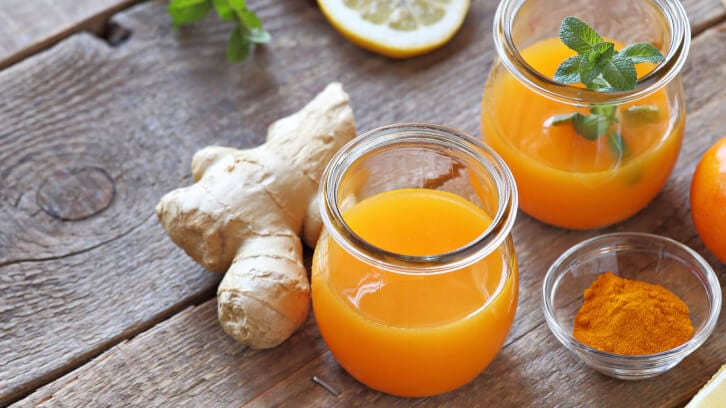“The primary finding from this study was that a supplement containing 17.5 g of raw turmeric root (~700 mg curcumin), 1,000 mg of Vitamin C, 3,000 IU of Vitamin D3 and 200 mg of black pepper (~10 mg of piperine) reduced the incidence of upper respiratory and GI symptoms," the team of UK-based researchers wrote in the journal Nutrients. "These findings suggest that this combination supplement, consumed once a day, could be an effective method of reducing illness symptoms in elite male footballers.”
They added that the study is the first to demonstrate that a combined supplement of vitamin D, vitamin C and turmeric root may play a role in maintaining intestinal barrier integrity and reducing the post-exercise damage to the gut barrier.
Immunity in the elite
Injury and illness in elite athletes substantially reduces player performance. Specifically, in football it has been reported that illness accounts for 6.3% and 8.5% of absences in training and match-play, respectively.
In addition, intense training regimens can result in significant muscle damage and inflammation due to limitations in the antioxidant system to neutralise free radicals post-play. Whilst athletes often rely on the use of steroidal anti-inflammatory drugs (NSAIDs) to ensure recover, their long-term use may result in significant adversities to health.
Gastrointestinal issues are also a common complaint in elite athletes, which significantly impact performance through altered intestinal barrier function reducing nutrient absorption and increasing systemic inflammation.
Thus, there has been significant interest in the use of supplementation to potentially enhance immunity and antioxidant capacity to reduce inflammation and post-play discomfort, whilst preventing gastrointestinal discomfort to maximise performance.
Study details
The research included 23 elite male footballers from the English third tier 2022/2023 season. Following a 22-day control period of no supplementation, the players received a 60 ml shot daily for 116 days.
Each Turmeric Co shot contained 17.5 g of raw turmeric root (estimated to contain 700 mg curcumin), 1,000 mg of Vitamin C, 3,000 IU of Vitamin D3 and 200 mg of black pepper (estimated to contain 10 mg of piperine). Participants reported incidence of URS and GI distress daily by questionnaire, and the study measured subjective soreness and plasma concentrations of creatine kinase (CK), c-reactive protein (CRP), intestinal fatty-acid binding protein (I-FABP) at 0 hours, 40 hours and 64 hours post competitive match.
The researchers reported that participants experienced greater URS incidence during control than in the intervention period.
Specifically, they noted that the incidence of URS, GIS and plasma IFABP at baseline was significantly greater during the control period than in the intervention period. At 40 hours, findings indicated that CRP was greater than at baseline during the control period but not during supplementation.
Summarizing the findings, the researchers suggest that daily combined supplement intake of turmeric root, vitamin C and vitamin D may reduce GI distress and upper respiratory symptoms in elite male footballers.
“There are some mechanistic links between vitamin D and the physical barrier in the respiratory system; for example, it supports the production of proteins of tight junctions leading to an improved barrier to reduce the risk of infection,” they wrote.
“Vitamin C influences a number of immune functions; for example, high concentrations of vitamin C are associated with enhanced antibody responses. Curcumin is known to alter the COX-2 pathway signaling leading to the lowering of a number of inflammatory cytokines,” they assert.
They added that the findings suggest that elite athletes can experience significant intestinal damage post high-intensity exercise as observed from increased I-FABP levels; a phenomenon which the study suggests may result from the microbiome homeostasis maintenance activities of turmeric and vitamin D.
For future research, the study noted that a larger sample paired with more objective data analysis procedures would improve the validity of the findings.
Source: Nutrients
doi: 10.3390/nu16020243
“Combined Turmeric, Vitamin C, and Vitamin D Ready-to-Drink Supplements Reduce Upper Respiratory Illness Symptoms and Gastrointestinal Discomfort in Elite Male Football Players”
Authors: David J. Clayton et al.

